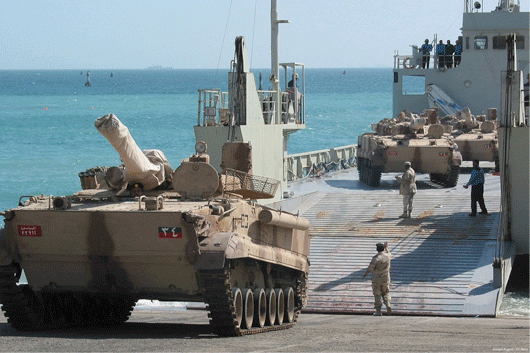
By Diana Alghoul
For the past two months it has been reported by Latin American news sources that there are Columbian troops fighting in Yemen as part of the UAE’s contingent in the Saudi-led coalition.El Tiempo report on the issue first, claiming 100 Columbian troops arrived in Yemen in early October and more were to follow.
However Arab news sources, who are usually very quick to report foreign fighters in Yemen, have been unusually silent on the issue. There were also no Yemeni officials in either Riyadh or Aden confirming or denying the reports, which made many skeptical about the authenticity of the claims.
A New York Times report, however, drew much light on the issue. It not only confirmed the presence of the Columbian soldiers, but said that there are also Panamanian, Salvadoran and Chilean soldiers currently fighting in Yemen. They have not been deployed on behalf of the wider Saudi-led coalition, but by the UAE. Unlike the Saudi deployment of Senegalese, Egyptian, Ethiopian and Sudanese troops to help organise and assist the Yemeni troops in the anti-Houthi campaign in northern and central Yemen, the Latin American troops have been deployed to intercept Al-Qaeda and the new Daesh threat, meaning they are stationed in southern Yemen.
Without even looking at further details of the deployment, many questions arise: What will their role be in Yemen? Why Latin American? How will they affect the Yemeni fighters or how the wider coalition operates?
Before anything it’s important to understand that this decision was not random. There is context behind it. At the start of the Arab Spring, insecurity in the UAE meant officials set up a mercenary army to help intercept any revolutionary sentiments that may leak into the country. There was also a perception amongst politicians inside the Gulf Cooperation Council that the Arab Spring is allowing for Iranian infiltration into the Arab world. So, the mercenaries also served as guards to protect the UAE border from any external threats. Instability in the Gulf of Aden was also a reason, as the threat of Al-Qaeda in the Arabian Peninsula and Somali pirates loomed.
The situation becomes increasingly problematic when looking at how the mercenaries were formed. Erik Prince, the man who helped form this army, is a controversial figure in the military industry. He was one of the founders of Blackwater, a divisive private American military company and security-consulting firm that had contracts with the White House to set up mercenaries to fight on America’s behalf during the Iraq invasion.
The company was forced to rename itself after it was revealed that the mercenaries were committing war crimes in Iraq. After one particular event on 16 November 2007, the forces opened fire at Nisour Square, killing 17 people, including a nine-year-old boy while escorting a US embassy convoy. This led it to being dissolved two years later and renaming itself as Xe Services. Prince moved to Abu Dhabi in 2010 and under a $529 million contract he started to secretly build an 800 man mercenary for the UAE. He repeatedly denied it, but he denied doing so on the behalf of Blackwater, which at that point did not exist.
The complexities of fighting Al-Qaeda are not as prevalent, simply because the main threat of Al-Qaeda is in southern Yemen and the military situation there is not as complicated and it will only be adapting to a new geography of the counter-terrorism that the mercenaries have already been trained in.
This is not to say the decision is welcome by the whole of the GCC. Saudi Arabia, who despite being in an alliance with the UAE, has expressed distrust towards them, due to their relations with former Yemeni dictator Ali Abdullah Saleh. Riyadh has repeatedly reiterated its suspicions that Abu Dhabi is still in an alliance with Saleh, a cause of much diplomatic tensions. Saudi has also rejected the Latin American troops’ deployment by the UAE because they preferred the presence of Sudanese troops, approved directly by Riyadh and who arrived in October.
This not only reflects on the element of distrust between the two GCC countries leading the war, but the way the Yemen conflict is going. It is not only dangerous for the UAE to secretly deploy mercenaries that was initiated by the founder of a notorious company, but digging further divisions at a time in which the Saudi led coalition needs to be as united as possible. This is also reflective of the UAE’s military ambitions in the Middle East. They have invested heavily in their military capabilities, which are growing rapidly, but it is evident that they would want to do this, while having the luxury of putting as few of their own citizens in dangerous war zones as possible.